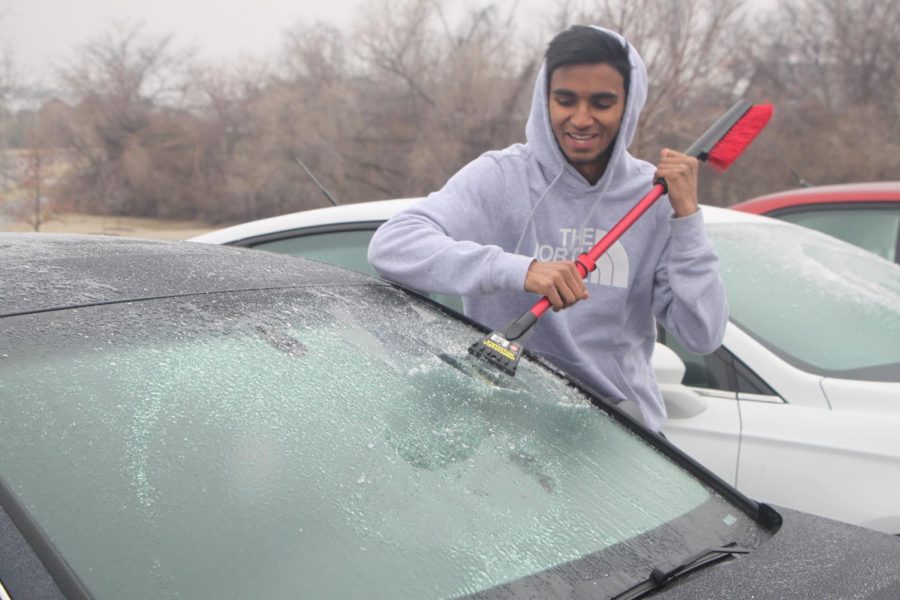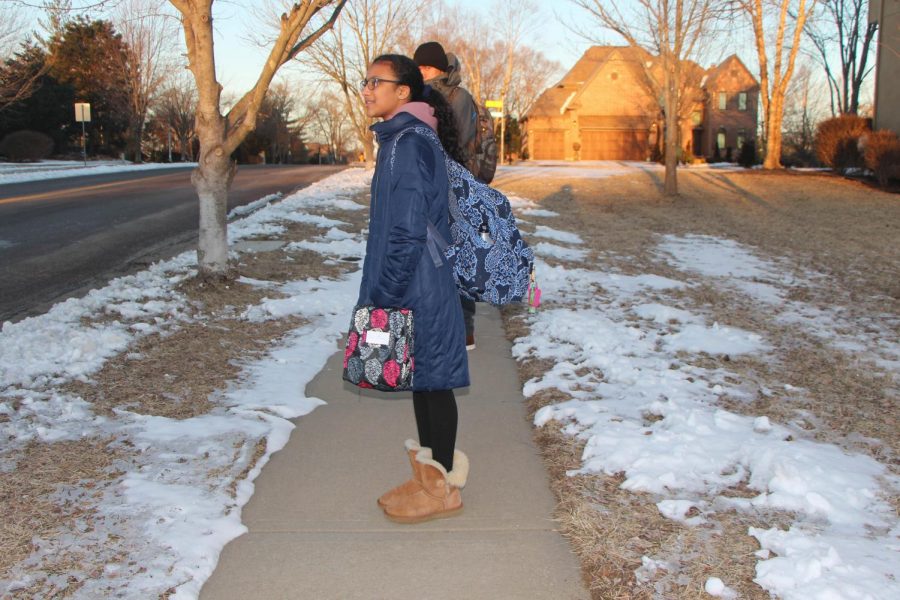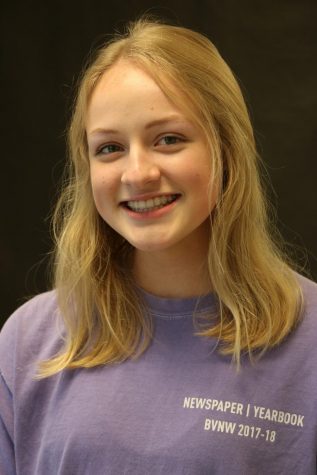Inclement weather days creates challenges for Blue Valley District
Following seven inclement weather days this year, the Blue Valley District altered second semester’s schooling schedule to reach state requirements.
March 7, 2019
The state of Kansas requires students in grades one through eleven to have 66,960 minutes of instructional time and seniors to have 65,160, according to the Education Commission of the States. Seven inclement weather days this year caused the District to make changes to second semester in order to end school before Memorial Day and reach the required instructional minutes.
With the most the inclement weather days being this semester, AP Government teacher Ken Thomas said the loss of school days has impacted learning in his class as they lose in-class activity time.
“We’ve lost those activities and I’ve already had to cut five major activities that I usually do with the students,” Thomas said. “The depth is missing a little bit. We are not able to go quite as in depth as we normally do to compliment the book.”
Going into the spring sport season, Athletic Director Kevin Gerke said he doesn’t believe there was one thing someone could have done to help or prevent it, but he feels for the coaches and athletes who cannot use their facilities for outdoor practices.
“It’s been frustrating for me, but my sympathies really go to the kids and to the coaches who have been the ones who’ve had to try and figure it out,” Gerke said.
With the seven inclement weather days during this school year, Chief Communications Officer Kristi McNerlin said the Blue Valley School District began to worry about seniors reaching their minutes.
“When we went beyond the three days built in, and knew that our seniors were starting to become very short on hours, we were getting a little nervous about that,” McNerlin said. “We had to look at some alternative ways to gain back some of the instructional hours.”
To combat the inclement weather days this year the Blue Valley District has already made changes with adding ten minutes to each day, as well as taking away three late arrival days and two teacher inservice days, to make sure schools still end March 24. Thomas said he respects the districts decisions to listen to what the community wants.
“I respect the district’s willingness to do what the community wants them to do and go ahead and get us out by memorial day,” Thomas said. “I also understand that that’s kind of tough sometimes, especially in this year.”
AP US History student and junior Kaelin Garey said she doesn’t mind the added minutes because she doesn’t want to go to school after Memorial Day.
“I don’t want extra days added on to school. I want a long summer and to not have my finals go into June,” Garey said.
To provide more flexibility next year, McNerlin said the district is working on a late start option for inclement weather days next year. According to McNerlin, they will look at alternate bus routes and other logistics, for a late start option when timing is a factor for the weather.
“There’s a lot of logistics that we’re going to have to work out to make that work, but we’re going to go to work here this spring and over the summer to make sure that by the time we hit inclement weather time next year, that we have a late start option,” McNerlin said.
Although Thomas said he supports the late start option, he said he understands the district is going to receive criticism with whatever decision they make.
“It’s a no win situation for the district and I go back to the fact that the district tries very hard to put students first, and the safety and health of the students first,” Thomas said.
Looking further into future options on inclement weather days, McNerlin said the implementation of Macbooks this year could be an option in the future. However, McNerlin said she believes this change wouldn’t happen for years down the road because it would involve changes with the type of instructional hours the state allows.
“I don’t know how long it would take for that to evolve, but certainly something because of the One to Learner’s initiative, we can start to begin to look at that and see if that’s a viable option we’d want to consider,” McNerlin said. “We’re just not there yet.”
In relation to content, Thomas said after being a teacher assistant at the Kansas State University for a few years, where majority of the class was online, he can see himself moving toward a snow day option where a quiz can be taken online, in order to keep in class activities. However, with the new Macbooks, Thomas said students will need to adjust to a more online based learning style in the future.
“In those classes there were no snow days and students have to understand that that’s the reality of this new technological world,” Thomas said. “When they get to college the professors are putting more and more stuff online and the expectation is that you get it done.”
After the difficulty with winter weather this year, McNerlin said she wants to thank everyone for their patience.
“I want people to know that when we make the decision to call school off, we make that with student safety and staff safety in mind and we know that has impacted families differently,” McNerlin said. “We just want to say thank you.”







